|
Scripture Readings: Exodus 17:1-7 | Psalm 78:1–4, 12–16 | Philippians 2:1–13 | Matthew 21:23–32
“But the people thirsted there for water; and the people complained against Moses and said, 'Why did you bring us out of Egypt, to kill us and our children and livestock with thirst?'” Today’s reading from Exodus reminds me of the old saying: ‘those who forget the past are doomed to repeat it’. Just last week we heard about how the Israelites, taking their first steps on the road to freedom and the Promised Land, had quickly turned to despair when they ran out of food. Seeing no hope ahead, they complained against Moses and the LORD, only to be given an incredible gift: divine bread, enough to sustain the entire community. Offered, not just once, but faithfully from that day forward. The Living God miraculously provided for His people, inviting them to trust and rely on His merciful love. Not long before this episode with the hunger and the heavenly bread, Israel had already faced trouble finding water. In Exodus chapter 15, only a few days after God had rescued them from the Egyptian army by parting the sea before them and leading them to safety, God led them into a region where the only water was unfit to drink. In response to the people’s complaints, God makes the bitter waters sweet; another gift meant to meet their needs, and show to them his love. So far, at every step of the way, the LORD has been utterly faithful. Though He is leading Israel into uncharted and dangerous territory, He is continually present with them, and lovingly provides everything that they need to follow Him. But instead of Israel growing more confident and trusting in God, we find another dangerous trend beginning to develop… a pattern of doubt and disbelief that was quickly escalating. “Moses cried out to the Lord, “What shall I do with this people? They are almost ready to stone me.”” How often have we seen this pattern at work in the world: faced with troubles, we give in to fear, then we look for someone to blame… and then we start to look for things to throw at them. Anger and violence flow freely from fear and desperation… from believing there is no help coming, no hope on the horizon. For Israel, the stakes were raised, and so was their sense of panic… again they forgot the One who had been with them all along, who had rescued them in the past… and the One who would rescue them again. Their fear led them to doubt the LORD, and to resist His lead. We can see something similar going on in our Gospel reading this morning, in the confrontation unfolding between Jesus and the Temple leadership… the chief priests and scribes charged with leading what was left of Israel to be faithful to the LORD and to walk in His ways. Centuries after the people quarreled with Moses in the wilderness, panicking on their way towards the Promised Land, Jesus arrives in triumph to holy city, Jerusalem, the capitol of the Promised Land… and He starts disrupting everything. He boldly upsets the political, spiritual, and social status quo, calling out the hypocrisy and hard-heartedness of those claiming to be in charge. Matthew’s picture of Christ is of someone who comes, not simply to comfort and console, but to lead His people into the true Kingdom of God. To lead them away from self-righteousness, and the love of power and status. To lead them into the humble and holy ways of the Living God. No wonder Jesus was seen as a threat to those on top. To those who wanted to be the ones calling all the shots… the ones who wanted to take the lead all for themselves. Christ was threatening their authority… challenging their right to rule… and endangering their high standing with all the people. And so their fear leads them to doubt… to reject Christ’s powerful words and deeds… and then it leads them to anger… to quarreling against this dangerous upstart. “By what authority are you doing these things,” they demand of Him, “who gave you this authority?” They were not looking for Christ’s answer here; they were looking for a fight. The response of Jesus is startling… upsetting many of our assumptions about what God wants from us. To the religious leaders, scholars, priests, and teachers of his day, Jesus says “Truly I tell you, the tax collectors and the prostitutes are going into the kingdom of God ahead of you. For John came to you in the way of righteousness and you did not believe him, but the tax collectors and the prostitutes believed him; and even after you saw it, you did not change your minds and believe him.” Despite all of their status, and credentials, and power… despite all of their religious background and practices… outcasts and outright sinners were closer to God’s kingdom then they were, because the sinners believed and turned back to God, while they doubted and dug in their heels. In the ministry of John, and ultimately in the person and work of Jesus, the Living God was again leading His people into the way of freedom and life. But because of their fear and doubt, the chief priests and scribes were fighting against the LORD… unable to see God’s unexpected lifegiving Gift before them. How often do these two stories from the pages of Scripture remind us of our own pasts? Of our own times of doubt? Do we remember the times when it seemed as though we didn’t have enough? When we could see no way forward, and we could feel our panic starting to rise? Do we remember when we felt that things were great, but then suddenly we were confronted by an uncomfortable truth that threatened to disrupt the things we held to be most dear? Do we ever remember being called out for being on the wrong path? Do we remember repeating the same mistakes, again and again? If so, then both of these passages of the Bible have good news for us: The Living God, who led Israel through the arid wilderness… who humbly took on the form of a servant, in the Lord Jesus Christ… to rescue His people, and lead them into the Promised Kingdom of God… this same God is with us today, and He remains utterly faithful… even despite our ungratefulness, our fears, and unbelief. God graciously poured out water for the Israelites when the rock was struck, even though they had done absolutely nothing to deserve it. And when the guilty ones… the sinners and reprobates believed and turned their hearts to God, Christ welcomed them wholeheartedly into the Promised Kingdom. From beginning to end, God’s story is about His ongoing rescue mission… bringing hope to the hopeless, and help to the lost… salvation for slaves and sinners. Though we continue to struggle with fears and doubts, God has shown us again and again that He has not given up on any of us. He longs to break the patterns of disbelief in our lives, to draw us back to Himself through faith in His redeeming love. Yes, we do well to learn from the poor examples of unbelief we have both heard and experienced first hand, and with fear and trembling work to follow Jesus into the way of salvation. But always our hope is that God Himself is still at work within us, transforming us through His Spirit to live wholeheartedly for the LORD. In Christ we see God providing new life for any who will receive it: allowing Himself to be struck, to be killed upon the cross, all to free us sinners trapped by our fears, and doubts, and stubbornness… and to raise us up with Him to share in the holy life of God. In Christ we are not doomed to repeat the mistakes of our past… we need not keep falling back into the self-destructive patterns in our lives. God has poured out His grace through Jesus His Son to sustain and to save, not only those of us gathered here, but our whole frightened, doubting world. So even in the face of our own fears and doubts, may the LORD pour out His grace, and keep us faithful to Jesus. Following His lead. Forgiven and freed. And empowered to help those around us find eternal life in Him. Amen.
0 Comments
God faithfully provides again and again, despite our fears and doubts. Our service of Morning Prayer, Bulletin, and Sermon this week can be found here: And our Songs for this week can be found here:
Scripture Readings: Exodus 16:2-15 | Psalm 105:1–6, 37–45 | Philippians 1:21–30 | Matthew 20:1–16
Then the Lord said to Moses, “I am going to rain bread from heaven for you, and each day the people shall go out and gather enough for that day. In that way I will test them, whether they will follow my instruction or not. Today we continue our travels through the book of Exodus, following the unfolding story of the faithfulness of God as He rescues and redeems the people of Israel. So far we have seen how the LORD was moved with compassion at the sufferings of the Hebrews, and so He raised up a man named Moses: sending him to confront Pharaoh, and to demand His people’s release. We have seen God’s fearsome power at work, as He sends plague after plague, culminating with the death of all the firstborn of Egypt. We saw God part the sea to save Israel from destruction at Pharaoh’s hands, and God’s decisive act of deliverance: washing away Egypt’s army. And so now we have come to a new beginning: a new phase of Israel’s journey. They are finally out of Egypt, finally free from their old oppressors… now they are headed into the wilderness on their way to the Promised Land. But their newfound freedom turns out to be much harder than Israel had imagined. Now they were confronting new dangers they were not prepared to face. Exodus 16:1 “[O]n the fifteenth day of the second month after they had departed from the land of Egypt. The whole congregation of the Israelites complained against Moses and Aaron in the wilderness. The Israelites said to them, “If only we had died by the hand of the Lord in the land of Egypt, when we sat by the fleshpots and ate our fill of bread; for you have brought us out into this wilderness to kill this whole assembly with hunger.” Not exactly a hopeful view of their situation. Just over two weeks into their Exodus, the Israelites were despairing. Grumbling against Moses and Aaron, they say they’d be better off dead… longing for the life they’d had back in the land of Egypt. Back when they had plenty of meat and bread… back when life was familiar and safe. Two weeks… how quickly we can forget the goodness and mercy of God. How quickly we can turn back to our old ways of life, even when they brought us nothing but misery and grief. With no food in sight, four centuries of oppression and suffering were forgotten. Along with Pharaoh’s brutal execution of their children, attempting to wipe out any hope for their future. Gone too was their memory of God mighty acts to save them: the plagues, parting of the waters… providing a way of escape when all hope was lost. They had all witnessed first hand the saving love of the Living God… in a way no other nation on earth had ever experienced. Mere months before they were simply slaves crying out for mercy. Now they were free, with no one to hold them back from the new life God had in store for them. But what could they do when their path led them through a land completely empty of food? What were Moses and Aaron thinking? How could God treat them so poorly? How were they ever going to survive if they kept on following Him? Faced with the undeniable danger of running out of food, Israel again could not see any possible way forward. Their trust was stretched to the limit… and so they grumbled and complained… something we can all be tempted to do in times of crisis. And I mean really, who among us would have acted differently? It’s not like they were upset about nothing, after all. We’re talking about one of the most basic needs there is. Israel needed food! They needed a whole lot of food! But it turns out they also needed to learn where too turn in their times of need. That instead of giving up and grumbling, they could instead continue to trust the One who had rescued them, the One who was still with them. In spite of their doubts and complaining, God responds to their needs, both the lack of food and lack of faith, by graciously providing: “Then the Lord said to Moses, “I am going to rain bread from heaven for you, and each day the people shall go out and gather enough for that day. In that way I will test them, whether they will follow my instruction or not.” Miraculously, the LORD provides the Israelites with food… with a strange, unfamiliar substance they could turn into bread, but which they could not store up and hoard… it needed to be received daily. The Old Testament scholar Victor Hamilton writes this about the impact this daily offering was intended to have: “Each day God would furnish a fresh supply of manna for His people. In this way God is teaching them about a relationship of trust, an attitude reflected later in the words of Jesus: ‘do not be anxious about your life, what you shall eat or what you shall drink… do not be anxious about tomorrow.’ The Israelites are to trust Him to meet their physical needs one day at a time. Tomorrow is His concern and problem, not theirs.”[1] Along with the miraculous food, God was teaching the Israelites to trust Him. To believe that He would be faithful to them, always. Not only through those dramatic acts of deliverance in the past… but by supplying daily everything they would need to follow Him. Up until this point, Israel’s relationship with the LORD had been somewhat limited to witnessing His saving work, and following His lead. Now God was taking that relationship into a deeper level: forming a pattern of life for His people dependent on His ongoing grace, inviting them to trust Him with the very basics of life. They were still to look back and remember those great acts of God’s redeeming love, but now they were also to look ahead and expect to find His grace each day. They were now to become a people who placed their whole hope in their Saviour, even in the face of some very real challenges. We too are being invited into this deeper walk with God, into a way of life where we can bring all our cares and concerns before Him, and in this way, to learn how to rely upon His love. We’re invited to turn to God, not only when we’re at the end of our rope, but to actively look to Him each day, for our sustenance and strength. This past year we have all seen our world dramatically change before our eyes. Many things that once seemed safe and familiar have now been severely shaken, and it can be tempting to look back and grumble at all that has been left behind. We too can easily forget the saving grace we have received, and how our Saviour has been there for us, in our every hour of need. But despite the very real challenges that lie ahead of us, God is calling us to be a people who can face the future in hope. A people who expect to find the mercy of God each day, and who know where to turn, when we can’t find our own way. “Give us today our daily bread.” Our Lord Jesus has taught us to pray… inviting us, in our times of need not to give up or to grumble, but to cry out in faith to our merciful heavenly Father. Through prayer, through seeking to share our lives with the Living God each day, we too can learn to rely upon His faithful, constant love. We too can learn to look with hope to where our LORD is leading us, eager to receive and share His grace with our world. Through Jesus Christ we have been set free for this brand-new life with God; guided by His Holy Spirit into God’s Promised Kingdom. In Jesus, the true bread from heaven, God has provided everything we need, and He asks us now to trust Him with everything we are… with our yesterdays, todays, tomorrows, and forever. Amen. [1] Victor P. Hamilton, Handbook on the Pentateuch (Grand Rapids, MI: Baker Book House, 1982), 186-187. We're continuing our journey through the book of Exodus, where this week we hear of God's sustaining grace and invitation to a deeper faith. Our service of Morning Prayer, Bulletin, and Sermon this week can be found here: And our Songs for this week can be found here:
Scripture Readings: Exodus 14:19-31 | Exodus 15:1b–11, 20–21 | Romans 14:1–12 | Matthew 18:21–35
“Israel saw the great work that the Lord did against the Egyptians. So the people feared the Lord and believed in the Lord and in his servant Moses.” I was baptized when I was 15 years old, 20 years ago. Though I grew up in a Christian family, which was quite active in our Church, it was the norm in the denomination, the branch of the Church I grew up in, to wait until someone was old enough to make up their minds for themselves. I can remember a lot about that day: I remember standing up at the front of the Church looking out at everyone. I remember the great big tank that was prepared for us to be submerged in. But most of all I remember what I was feeling: fear. I knew that this was to be one of those decisive moments in my life… when something was supposed to change… and that something was supposed to be me. I was afraid that this was my one big shot to get things straight with God… and that if I messed up after taking this step, then all hope for me would be lost. It turns out, I still had a lot to learn about what the Living God is like, and what He actually has in store for those who seek to follow Him. But at the time that 15 year-old infant in faith, looked at the water and felt dread. As strange as it may seem, facing baptism I felt hopeless. As we turn to the Exodus story today, we find that the Israelites have been brought to the brink of a seemingly hopeless situation as well. After the final plague, in which the firstborn of Egypt all died, while the Israelites who faithfully ate the Passover supper were spared, Pharaoh finally relents, and grudgingly lets the people of Israel go. But not long afterwards, he changes his mind again, and with his army, Pharaoh pursues the Israelite host, catching up with them by the shores of the Red Sea, (or the Reed Sea). What we miss in our reading today is how the Israelites respond. In Exodus 14:10-14 we hear it loud and clear: “In great fear the Israelites cried out to the Lord. They said to Moses, “Was it because there were no graves in Egypt that you have taken us away to die in the wilderness? What have you done to us, bringing us out of Egypt? Is this not the very thing we told you in Egypt, ‘Let us alone and let us serve the Egyptians’? For it would have been better for us to serve the Egyptians than to die in the wilderness.” But Moses said to the people, “Do not be afraid, stand firm, and see the deliverance that the Lord will accomplish for you today; for the Egyptians whom you see today you shall never see again. The Lord will fight for you, and you have only to keep still.”” What follows is one of the most dramatic images in the Bible of the Living God’s decisive acts of deliverance. The waters part, and Israel crosses the sea completely unharmed. Pharaoh’s army pursues, the LORD completely washes them away. All that had once held them in bondage and terror, God covers with the waters, to free His powerless people. The scholar Brevard Childs makes this claim about the importance of this story: “God’s miraculous rescue of Israel at the sea was remembered as the event by which God brought into being his people. Israel left Egypt as fleeing slaves, and emerged from the sea as a people who testified to God’s miraculous deliverance. The tradition is unanimous in stressing that the rescue was accomplished through the intervention of God and God alone. He had provided a way of escape when there was no hope.”[1] This passing through the waters was God’s act of re-creating Israel: a new beginning, only made possible by His power and grace. Stunned, but saved, the Israelites soon broke out into song, praising Yahweh, the LORD, and worshipping Him in faith and reverent fear. Sounds like a wonderful conclusion to the story… but it’s not. Really, we are only just at the beginning. We can do this in our own lives too: mistake beginnings for endings. Looking around and seeing no signs of hope, no possible way forward, when in fact we are on the brink of an unlooked-for opportunity, a breaking in of grace we could not have imagined before. This happens over and over again, in the Scriptures too: God’s people find themselves in hopeless situations, usually, but not always, because of their own unfaithfulness, but then God opens up for them a new pathway to life: finding them in the darkness, and leading them into the light. At the root of this confusion, this temptation to despair… to look at our situations, or even ourselves, as completely hopeless… is a misunderstanding of the character and nature of God. A misreading of the story of who He is and what He is up to. Too often, when like the Israelites, all we can see are Pharaoh’s armies and the impassable waters, we believe in them more than we believe in our Saviour, assuming the LORD has left us to fend for ourselves. We might doubt His rescuing power, or His concern for us. We might even imagine that God Himself wants to wash us away. That He’s just waiting for an excuse to crush and condemn us… cutting us off, and covering us with the deadly waves. This is what filled my 15 year old heart and mind with dread. But what I failed to understand all those long years ago, as I was standing in fear in front of my Church, about to be baptized, was that this was not my one big shot to get myself straight with God… it was all God’s gracious act to wash me clean and set me free: This was God’s gift, to unite me in faith to Jesus, His Son, who loves us and gave His life for every one of us. I had completely misjudged the LORD and what He wanted for me, which is something I often continue to do, even 20 years later. So focused on my own struggles and sins, I couldn’t imagine He’d really love and fight for me. That God would strive to save somebody as broken as me. But that’s exactly what God is up to, that’s EXACTLY who God is: rescuing, saving lost, and broken, sinful, hopeless people… mercifully setting us free from everything that keeps us ensnared and enslaved, and eager for us to share in His freedom and holy love. Eager to be God for us, and to bring us all to a new beginning: to re-create us into His people, that is, to become like Him. Not driven to look down on or condemn, but to strengthen and support. Not vindictive or unforgiving, but overflowing with mercy. Our other Scripture passages point to this new pathway… to this God-shaped way of life. Not as perfectionistic ideals, but as life-giving steps towards our LORD, sharing in His nature through His Spirit at work in us. In our reading from Romans: St. Paul insists that judging each other must cease. Self-righteousness tears communities apart, and breeds all sorts of bitterness, feeding the selfishness that quickly forgets the graciousness of God. Israel was not rescued because they were great, or because they did everything right… but because God was merciful to them, so we must be merciful too. And in Matthew, we heard the words of Christ that forgiveness must flow. That we are to be a community where it is both received and offered. This is so hard, but so vital, so essential to our story. We confess each week when we recite the Creed that we believe in the forgiveness of sins. That when Jesus Christ came in the flesh “for us and for our salvation”, that He brought the forgiveness of God tangibly to our guilty world, to set us free from our sins, and to cleanse us from all unrighteousness. For this to be more than pious words, we must actually put them into practice: following Jesus and stepping towards forgiving others… and maybe even ourselves. This is only the beginning of where God is guiding us. Wherever we are today in our walk of faith, God has more for us in store. More peace to be found in placing our trust in His power and grace. More joy as we see His Spirit still at work in the world. More freedom as His forgiveness flows both to, and through, us. More life as He leads us into the way of holy love. I have learned a lot more about the power and grace of God these past 20 years, as time and again in my struggles and fears, Christ has covered me with the waves of His love… calling me to a deeper faith, a deeper trust in Him, to be who He really is: the Saviour of the world, and my Saviour too. Amen. [1] Brevard S. Childs, The Book of Exodus: A Critical, Theological Commentary, ed. Peter Ackroyd et al., The Old Testament Library (Louisville, KY: Westminster John Knox Press, 2004), 237. Today we hear about the Living God's decisive act of deliverance for Israel: guiding them safely through the sea, and ending their centuries of enslavement. We are also asked to consider today what being set free by God actually looks like, and how it effects the ways we are to relate to those around us. Our service of Morning Prayer, Bulletin, and Sermon this week can be found here: And our Songs for this week can be found here:
Scripture Readings: Exodus 13:1-14 | Psalm 149 | Romans 13:8-14 | Matthew 18:15-20
I don’t know about you, but I sure miss Hymn Tortons.[1] When I first arrived here at St. Luke’s Gondola Point just over a year ago, this weekly fellowship meal following the Sunday service was one of the practices of this Parish that stood out to me the most: a simple way to share food and friendship and hospitality, and to put into practice our identity as sisters and brothers in Christ… a spiritual family. I’d say it’s much more than just a meal, and a weekly get together. It is a tangible taste of love; one which says a lot about the kind of community we are, and which also plays an important part in shaping us to be the people God has called us to be: hospitable, caring, kind. It is one of our parish practices I am longing to return to… and hopefully we will be able to find a safe way to hold it again soon. Today the Holy Scriptures speak of another special meal: the Passover supper. A sacred commemoration of Israel’s redemption; rescued from Egyptian slavery by the mighty hand of God. Our text today comes at a crucial moment in the story of the Exodus: Two weeks ago, we heard how, as an infant, Moses was saved from Pharaoh’s genocidal schemes… and last week, we were witnesses to the commissioning of Moses by the Living God to face Pharaoh, and demand he set Israel free. Our readings pass right over the dramatic encounters that followed where Pharaoh refuses to listen to Moses… and all heaven breaks loose. God responds to the defiance of Egypt’s hard-hearted king with nine devastating plagues that leave his country in ruins. The river Nile turns to blood; swarms of frogs, gnats, and flies arise; Egypt’s livestock fall ill and die; painful boils break out on it’s people; hail thunders down from the sky; and deep darkness covers the land for three long days. (Now I know 2020 is getting a bad wrap, but just imagine living through all this!) Time and again, when given the chance to release his Israelite slaves, Pharaoh refuses to give up the power he thinks is in his hands. And so God unveils His final plague on the prideful rule of Pharaoh, revealing Himself as God Almighty, with no equal or rival. As Pharaoh had once ordered the execution of every Israelite newborn boy, the LORD now warns Moses that in this final plague “Every firstborn in the land of Egypt shall die” (Exodus 11:5). The Living God was about to bring an end to Israel’s oppression. After this, Pharaoh would relent and finally set them free. And now suddenly, for the first time, Israel is being called to participate in this final, decisive moment. Up until now they had simply watched and witnessed the saving power of God in action. But now God is giving His people a job to do… not to take up arms and overthrow their now weakened oppressors. Not to take flight and make a daring escape, fleeing under the cover of darkness and taking advantage of the Egyptian’s vulnerability. No… they are instructed to eat. To have a meal. To take part in a sacred supper, one that would celebrate forever God’s dramatic and gracious salvation of His people. This meal would become a foundational part of their story, one that would continue to shape their communities for generations to come. A few specific details about this special meal stand out: They were to gather in their households, or together with their neighbours, and eat an entire lamb… roasted over a fire. They were to consume its life, and burn up whatever they could not finish before the dawn. At the centre of this sacred supper is this slain lamb. They were also to smear the lamb’s blood on their doorposts; marking their houses, and those inside, as those who obeyed the Lord. The blood was to be a visceral sign; God’s deathly plague would pass over all those it marked… sparing everyone seeking shelter through it. Finally, they were to eat this sacred meal while ready to go. Prepared to leave behind the only life they had ever known, and confident that this decisive act of God would change everything. They were not sure where they were going yet, but they had to be ready to go. To follow the LORD into their brand-new life. I think it’s worth saying that this whole thing seems pretty strange. And not just because we live in a very different time and culture, although of course, that’s also true. What I mean is that nothing the Israelites were being commanded to do that night could accomplish or ‘do’ anything in and of itself. Their participation in this sacred meal was not what broke Pharaoh’s power. The Living God was the One working in ways beyond their wildest dreams… this was God’s gift to them, not something they won for themselves. But this strange meal mattered, their eating it mattered, because it embodied their trust in their Savior… pointing them towards the LORD, opening their hearts and lives to Him. God was doing all the saving, they were called to trust and follow… and to eat. To actively receive God’s mighty gift of deliverance. The Passover is a perpetual memorial of God’s rescue of Israel, not only reminding them of what was done long ago, but reminding them that the Living God, can be trusted with tomorrow too. As one scholar puts it: “The Passover celebration retold the story of freedom after more than four hundred years of Egyptian bondage… it was a source of hope for the nation’s future redemption.”[2] In short, “if God rescued us once… can we trust Him to do it again?” For Christians, this message of hope has been fleshed out once and for all: Passover points us to God’s greatest act of salvation through Jesus Christ, His Son. To set us free, God showed His compassion and His saving might over sin, evil, death… by taking on our human life, and offering it up in our place. Jesus freely gave His life to be broken on the cross, as the way those who trust in Him might receive God’s new, eternal life. Like a lamb led to slaughter, Jesus received our share of death… to share with the world His life-giving gift: His own body to be received, to be consumed in faith. At the centre of the Christian faith stands this slain and risen Man: The Lamb of God who takes away the sin of the world. It is Christ’s blood which is our refuge, shed so we might be spared… passed-over, forgiven, redeemed, rescued, set free. His sacrifice makes possible our new life with God. And this new life is calling us to be ready to go… to let go of what lies behind, and to trust our LORD to lead us… convinced that what Christ has already done makes all the difference in the world, not only for eternity, but for how we will engage in life even now. N.T. Wright puts it this way: “dawn is almost breaking, and we cannot put off the task of living the Jesus-way, the truly human way. As Passover people, redeemed people, the Church is commanded to flee with haste from whichever Egypt still beckons with its seductive slavery.”[3] Christ came to set us free from sin, and free to embody His holy love. Jesus is the ultimate Passover Lamb. We celebrate His sacrifice when we gather together in His name, confident that He is here with us, and remains our faithful Saviour. We take part in His sacred meal, in Holy Communion, to perpetually remember what our LORD has done for us and our world… to receive, to say yes to, the gift of life He offers us: the gift of Himself. And in this meal we are called to be continually re-shaped by His gift, sharing in the New Life of God even now. So let us continue to draw near with faith and actively receive God’s mighty gift of deliverance through Jesus Christ. Amen. [1] ‘Hymn Tortons’ is the name for our fellowship meal in the Parish Hall following worship each Sunday. Before COVID-19, parishioners would volunteer to bring enough food to share, and others would help with setting up tables or cleaning up in the kitchen. It is free, although donations are accepted to support the Rev. Canon Paul Jeffries who serves at Bishop McAllister College, Uganda. [2] M. R. Wilson, “Passover,” ed. Geoffrey W. Bromiley, The International Standard Bible Encyclopedia, Revised (Wm. B. Eerdmans, 1979–1988), 676. [3] N. T. Wright, Twelve Months of Sundays: Reflections on Bible Readings, Year A (London: Society for Promoting Christian Knowledge, 2001), 103. Two weeks ago, I issued a challenge for our whole Parish to begin reading through the book of Exodus on our own, each at our own pace, in order to help us get a deeper sense of what God is up to, both in this book, and in our world. Becoming familiar with what God has done, after all, helps us to understand what God is continuing to do, and how we as God's people can faithfully take part in it. Here is another short but great video put out by the Bible Project that helps to flesh out what is going on in the first half of Exodus. It covers some of the biblical book that our Sunday lectionary readings miss, and provides a worthwhile perspective on some of the difficult parts of this amazing story. I hope you enjoy it, and find yourselves edified as well. Blessings! Rob+ Our service of Morning Prayer, Bulletin, and Sermon this week can be found here: And our Songs for this week can be found here:
|
Rev. RObRev. Rob serves as the Priest-in-Charge at St. Luke's Gondola Point, and as the School Chaplain at Rothesay Netherwood School Archives
June 2024
Categories
All
|
|
5 Quispamsis Road, Quispamsis NB, E2E 1M2
Mail to: 12 Quispamsis Road, Quispamsis NB E2E 1M2 |
Contact Us
Parish Phone: 506-847-3670 | www.stlukesgp.ca | www.facebook.com/StLukesGP/ Rev. Rob: 506-608-1772 | [email protected] |
Proudly powered by Weebly


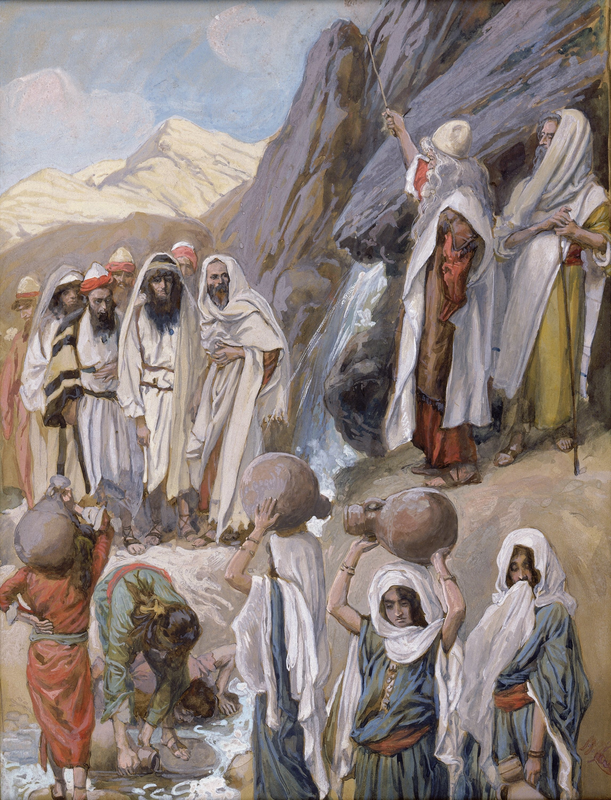
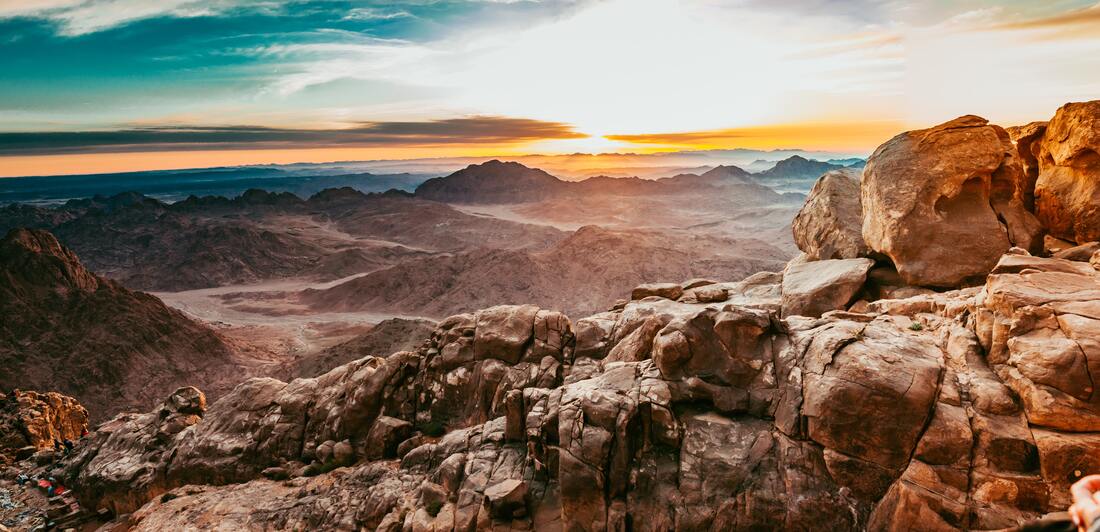
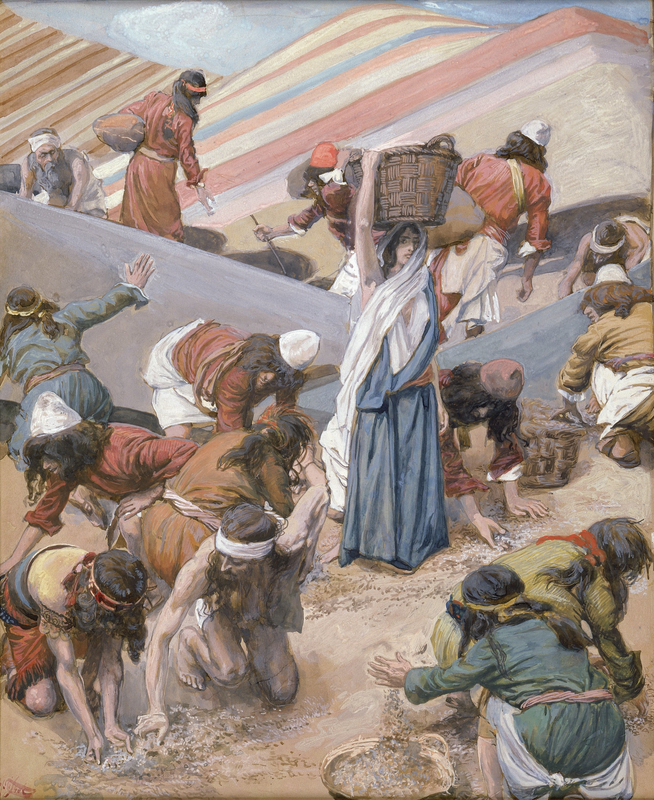

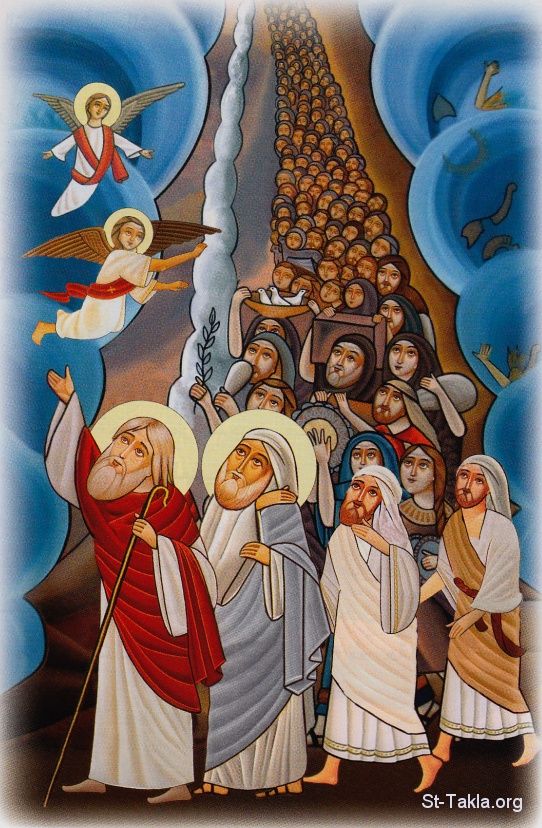
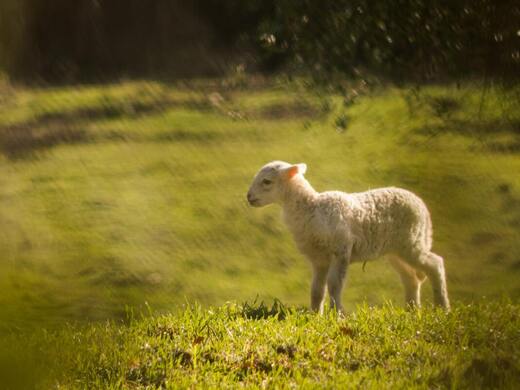
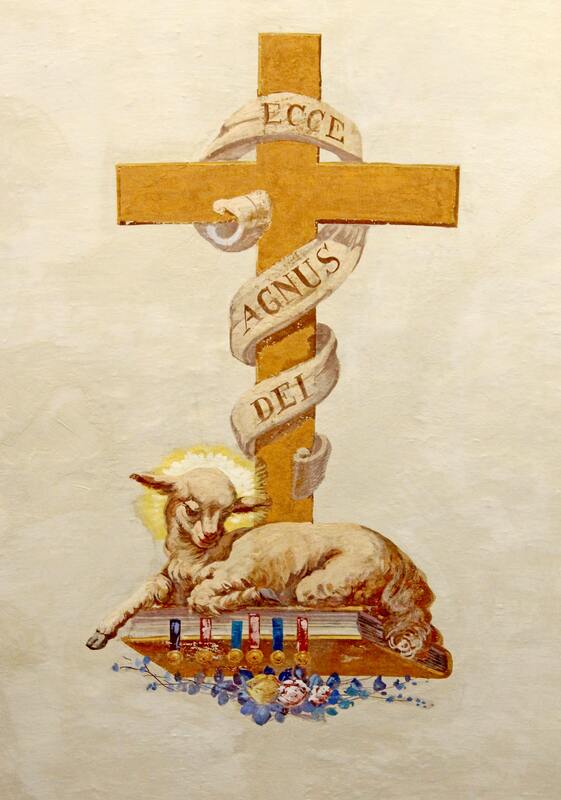
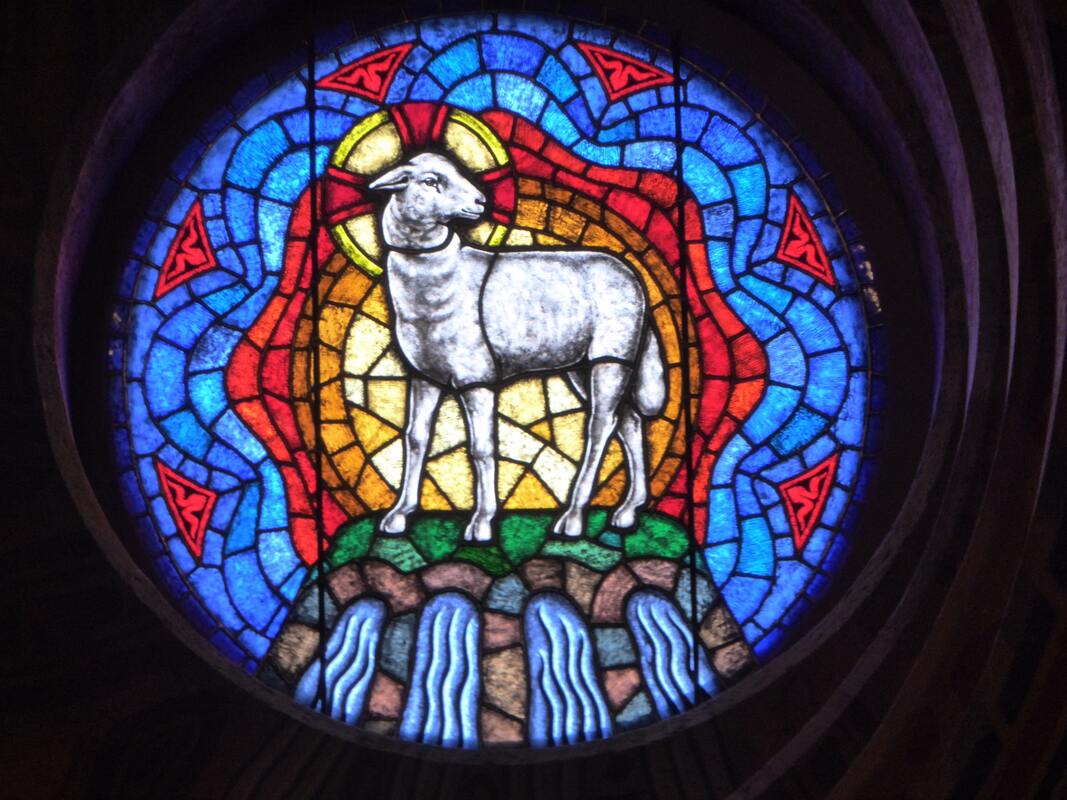
 RSS Feed
RSS Feed
